Disclosure: This article contains affiliate links. We may earn a commission from purchases at no extra cost to you, which helps our travel content.
The first time I felt the thunderous rhythm of a hundred samba drummers reverberating through my chest in Rio, I knew I'd found something that my former life of legal briefs and billable hours could never provide. After five visits to this magnetic city, I've traded my suit for dancing shoes and developed a roadmap for couples seeking Rio's authentic cultural pulse beyond the tourist traps. This isn't your standard Copacabana Beach holiday – it's a two-week cultural immersion that will transform how you experience Brazil's most vibrant city.
Finding Rio's Authentic Samba Soul
Forget the sanitized samba shows advertised in hotel lobbies. Real samba happens in the city's traditional gafieiras (dance halls) and neighborhood rodas de samba (samba circles). My personal favorite remains Pedra do Sal in the historic Saúde district, where every Monday night locals gather on the ancient stone steps where samba itself was born. The music typically kicks off around 7pm, but I recommend arriving by 6:30 with a cold chopp (draft beer) to secure a spot.
For couples looking to learn, skip the tourist-oriented dance schools and head to Carlinhos de Jesus Dance School in Botafogo where actual cariocas (Rio locals) perfect their moves. A private lesson costs about 150-200 reais (US$30-40) and provides foundations you'll use throughout your stay. Wear comfortable clothes and bring a quick-dry towel – you'll work up a serious sweat in Rio's humidity.
Don't miss the traditional samba school rehearsals in the months leading up to Carnival. Mangueira and Salgueiro offer the most visitor-friendly experiences, though they've become increasingly popular with tourists. For something more authentic, venture to Império Serrano in Madureira – it's further from the tourist zones but offers a genuine experience few foreigners witness.
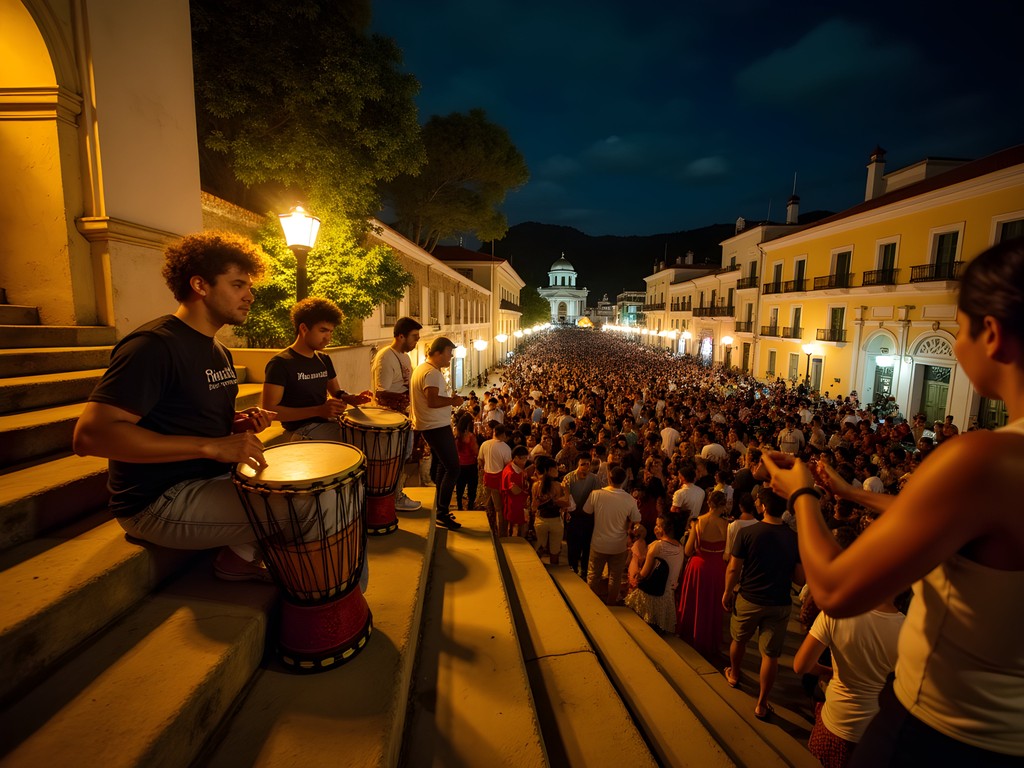
💡 Pro Tips
- Visit Pedra do Sal on Monday nights for authentic samba circles with locals
- Book private dance lessons at schools where actual cariocas train, not tourist-oriented venues
- Bring cash for street vendors and small venues that don't accept cards
Capoeira: Brazil's Fighting Dance
Capoeira isn't just a martial art – it's a cultural expression that embodies Brazil's complex history of resistance. As someone who's dabbled in martial arts throughout my life, I was immediately drawn to its fluid movements and percussive soundtrack.
For beginners, Abadá-Capoeira in Flamengo offers excellent introduction classes in English. More advanced practitioners should seek out Mestre João Grande's academy in Centro, where the training is rigorous but deeply rewarding. Most academies welcome visitors for single classes (60-100 reais) or weekly packages.
The true capoeira experience happens at the rodas (circles), where practitioners gather to play. Sundays at Aterro do Flamengo park feature several open rodas where you can witness high-level play. Remember that capoeira involves significant ground movement, so invest in proper training pants that allow full mobility.
After your first session, you'll understand why I keep a massage roller in my travel bag. Your muscles will thank you after attempting those acrobatic movements for the first time!
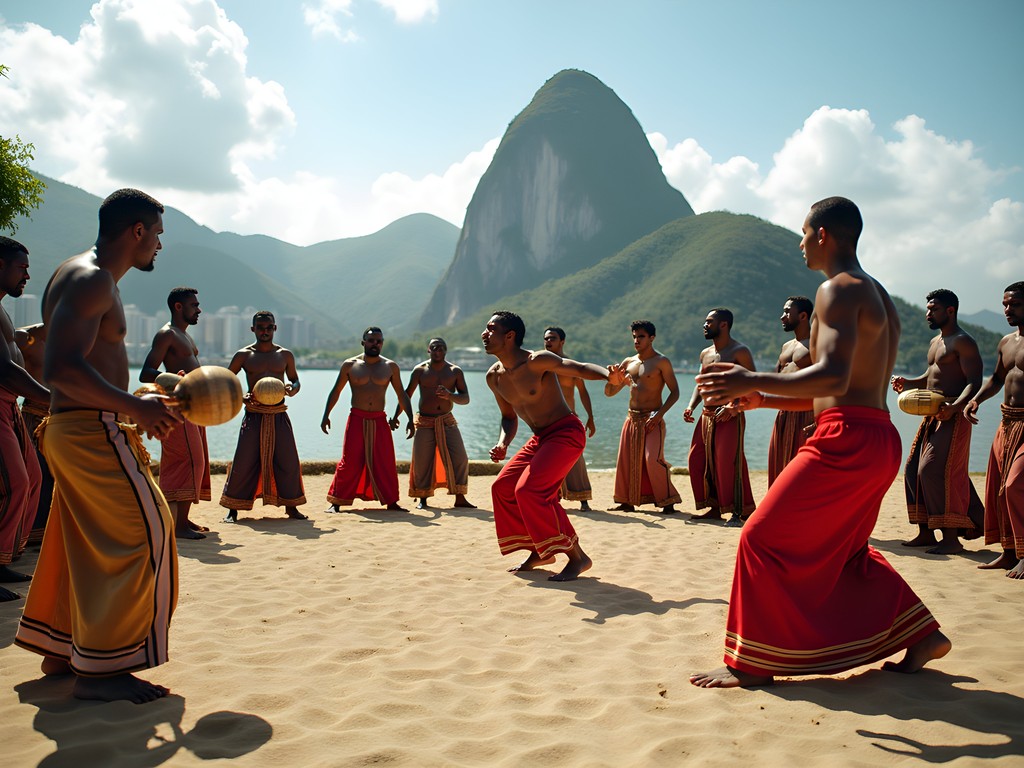
💡 Pro Tips
- Start with an introductory class before jumping into a roda (circle)
- Respect the hierarchy in capoeira circles - wait to be invited to play
- Wear lightweight, flexible clothing that allows for full range of movement
Behind the Scenes of Carnival
While experiencing the actual Carnival parade is spectacular, I've found that understanding the year-round preparation offers a deeper appreciation of this cultural phenomenon. Most samba schools welcome visitors to their quadras (rehearsal spaces) throughout the year.
The Cidade do Samba (Samba City) in the port area houses massive warehouses where the elaborate floats and costumes are created. Book a guided tour through Rio Samba Dancer (around 120 reais) for behind-the-scenes access to this impressive operation. Watching the skilled artisans craft the intricate costumes gave me a new appreciation for the event's scale.
For couples wanting to participate in Carnival rather than just observe, several schools offer spots in their parades for foreign participants. Grande Rio and São Clemente are particularly welcoming to international guests. Expect to pay 500-900 reais for a costume and parade position, but book months in advance as spots fill quickly.
The Sambadrome parade is famously hot and long. Stay hydrated with a reliable insulated water bottle that keeps water cold for hours in Rio's sweltering heat. And don't forget to protect your electronics from the inevitable sweat, spilled drinks, and occasional rain with a waterproof phone pouch – you'll want those photos without risking your device.
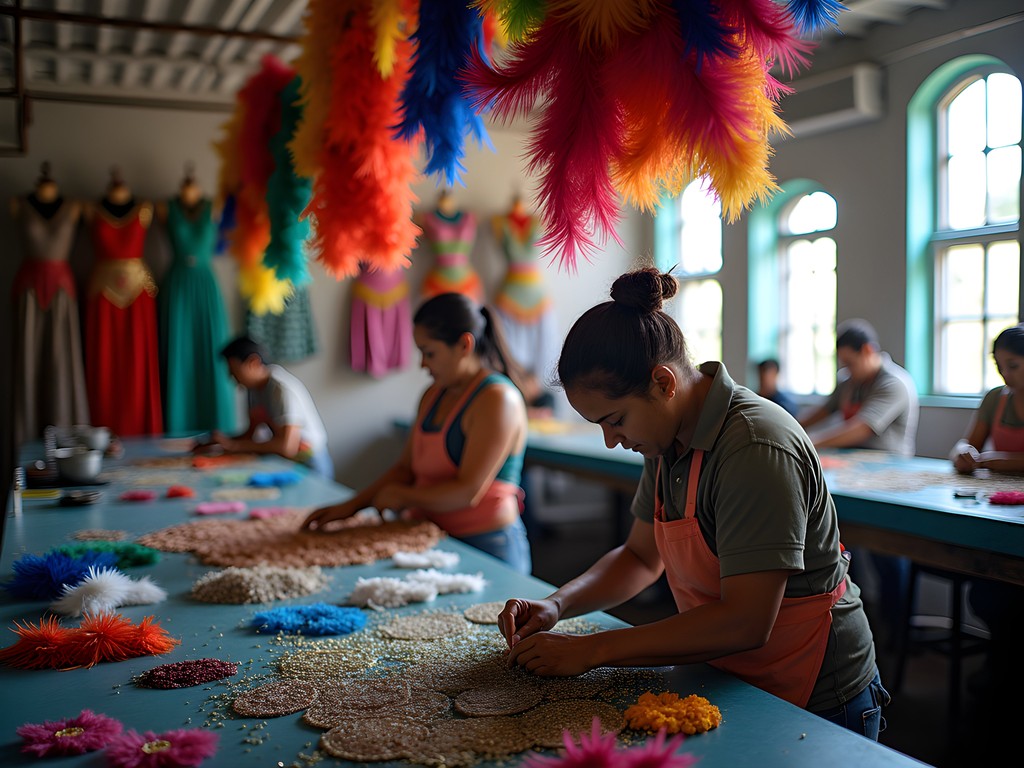
💡 Pro Tips
- Visit samba school rehearsals year-round, not just during Carnival season
- Book Sambadrome tickets through official channels to avoid scams
- Consider participating in a neighborhood 'bloco' parade for a more authentic experience
Cultural Immersion Through Food and Music
Rio's cultural identity is inseparable from its culinary and musical traditions. For an authentic experience, head to Feira de São Cristóvão, a northeastern cultural center where regional food, music, and dance converge. The feira operates daily but comes alive on weekends with live forró music and dancing.
For a proper understanding of Brazilian cuisine beyond the typical churrascaria experience, book a cooking class with Cook in Rio. Their feijoada workshop taught me the cultural significance behind Brazil's national dish while providing practical skills I've used back home. Classes run around 220 reais per person and include market visits.
Music lovers shouldn't miss the intimate jazz and bossa nova shows at TribOz in Lapa. This small venue founded by a Japanese Brazilian musician offers performances that rival anything I've seen globally. Make reservations in advance and arrive early for the best seats.
One practical tip I've learned from years of traveling to loud music venues: protect your hearing with high-fidelity earplugs. Unlike foam earplugs, these reduce volume without muffling the music quality – essential for Rio's notoriously loud samba performances.
For couples looking to bring Brazilian flavors home, pick up authentic ingredients at Mercado Municipal in Centro. The spice grinder I travel with lets me process fresh spices from local markets – much better than pre-packaged souvenirs and a practical reminder of your culinary adventures.
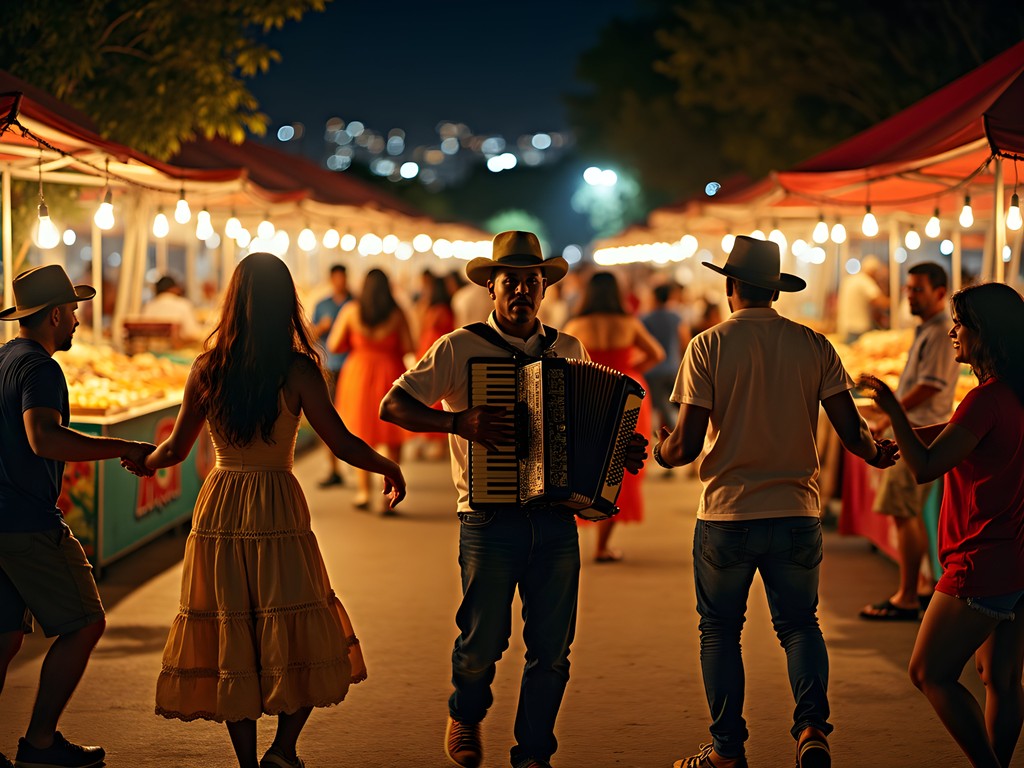
💡 Pro Tips
- Visit Feira de São Cristóvão on weekend evenings for northeastern Brazilian culture
- Book cooking classes that include market visits for a complete culinary experience
- Learn basic Portuguese phrases related to food and music – locals appreciate the effort
Navigating Rio Safely and Respectfully
After multiple visits to Rio, I've developed a pragmatic approach to safety that allows for authentic cultural immersion without unnecessary risks. The key is research and local connections. Before exploring less touristy neighborhoods like Madureira or Bangu, I arrange for a local guide through Airbnb Experiences or Tours By Locals.
Transportation deserves special attention. While Uber works well in tourist areas, the app 99 (similar to Uber but Brazilian) often provides better service in outlying neighborhoods. For public transport, purchase a money belt to keep your Bilhete Único card and small amounts of cash accessible but secure.
Cultural respect goes beyond basic etiquette. When visiting religious sites like Candomblé ceremonies or even Catholic churches during festivals, appropriate dress is essential. Women should bring a lightweight travel scarf that can double as a head covering when needed.
My legal background makes me particularly cautious about documentation. I never carry my original passport but instead keep a laminated color copy along with digital backups in cloud storage. This simple precaution has saved countless travelers from consular nightmares.
Finally, learn to read the rhythm of the city. Rio operates on its own timeline – samba events rarely start on schedule, dinner happens later than in Australia or the US, and rushing only identifies you as an outsider. Embrace the pace, and you'll discover the real Rio that exists beyond the tourist façade.

💡 Pro Tips
- Use the Brazilian app 99 for rideshares in neighborhoods where Uber coverage is spotty
- Carry only copies of important documents and small amounts of cash
- Respect local customs regarding appropriate dress, particularly at religious sites
Final Thoughts
After countless legal briefs in my former life and five visits to Rio in my current one, I've learned that this city reveals itself in layers. The Rio that tourists see – beaches, Christ the Redeemer, and staged samba shows – barely scratches the surface of its cultural richness. For couples willing to step beyond the postcard experiences, Rio offers a transformative journey through music, movement, and community celebration.
The true magic of Rio isn't found in any single attraction but in the connections between them all – how the rhythms of samba influence capoeira movements, how religious traditions inform carnival celebrations, and how food brings communities together across social boundaries. By approaching the city with respect, curiosity, and a willingness to move beyond your comfort zone, you'll discover not just Rio's culture but perhaps new dimensions of your relationship as you navigate these experiences together.
As we say in Australia, don't be a galah – get out there and find your own rhythm in Rio. The city's heartbeat has been going strong for centuries, and for two magical weeks, you can make it your own.
✨ Key Takeaways
- Connect with local guides to access authentic cultural experiences beyond tourist zones
- Participate in, rather than just observe, cultural activities like samba and capoeira
- Visit cultural venues year-round, not just during Carnival season
- Learn basic Portuguese phrases to enhance interactions and show respect
- Allow flexibility in your schedule to embrace Rio's natural rhythm and pace
📋 Practical Information
Best Time to Visit
year-round, though September-October offers pleasant weather without peak crowds
Budget Estimate
$100-150 per person per day excluding flights
Recommended Duration
2 weeks minimum for cultural immersion
Difficulty Level
Beginner With Proper Preparation

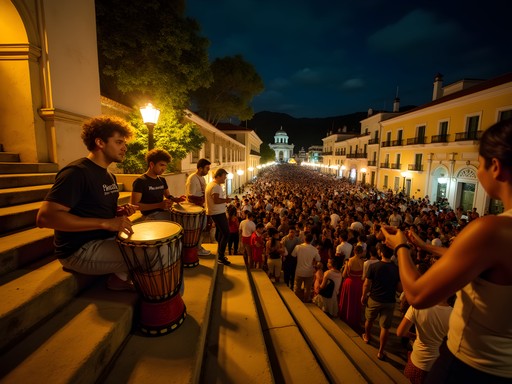
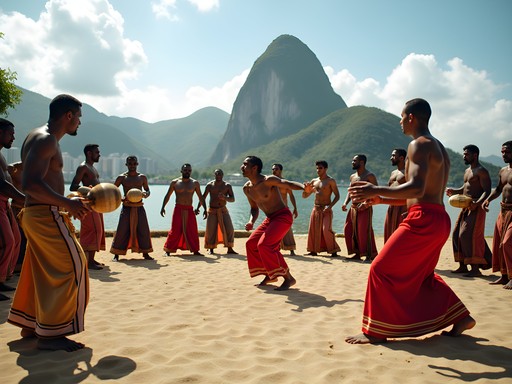
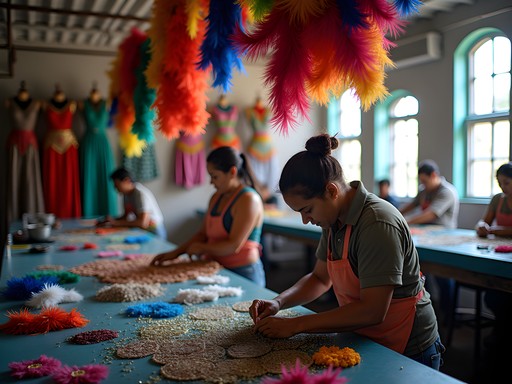
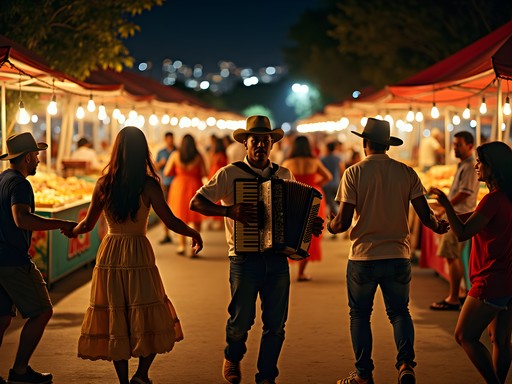
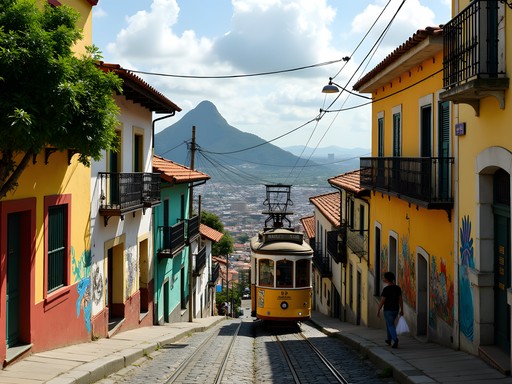










Comments
greenqueen
Going next month and this is super helpful! Quick tip for others - I've heard staying in Santa Teresa gives you a good mix of safety and authentic local vibe. Anyone stayed there? Also Jackson, loved the food section. The connection between feijoada and samba culture is something I never knew about.
Bryce Diaz
Man, this brings back memories. I spent three weeks in Rio back in 2023 and stumbled into a capoeira roda in Praça Tiradentes completely by accident. Ended up becoming friends with one of the mestres who invited me to train with his group. That experience changed my whole perspective on Brazilian culture - it's not just a martial art or dance, it's like a living history lesson. The songs tell stories of resistance and survival. Jackson, you really captured that essence in your writing. For anyone going, be respectful, watch first, and if invited to join the roda, go for it even if you feel silly!
coolnomad
How much should I budget per day for food and activities? Planning my first trip!
Bryce Diaz
Really depends on your style, but I did Rio comfortably on about $60-80/day including food, local transport, and some activities. Street food is incredible and cheap - don't skip the pastéis!
summerwalker
Love the photos! Really captures the energy.
Nicole Russell
Jackson, this is AMAZING!! I went to Rio last year and totally missed the authentic samba scene - stuck to the tourist areas like an idiot 😅 Your section about the rehearsals at the samba schools is gold! I'm definitely going back and doing it right this time. Question: did you take any Portuguese lessons before going? I struggled so much with the language barrier in the local neighborhoods.
summerwalker
Not Jackson but I used a translation app and learned basic phrases - worked fine! People really appreciate when you try.
dreamgal
What time of year is best for experiencing samba outside of Carnival?
coolninja
Been to Rio twice and totally agree about Lapa for authentic samba! Just avoid the super touristy spots in Copacabana. The real magic happens in the neighborhood rodas de samba on weekends. Also, if you're checking out capoeira, there's an amazing group that practices near Arcos da Lapa on Sunday afternoons - totally free to watch and they're super welcoming.
skyqueen
Is Lapa safe at night? First time going to Brazil and a bit nervous!
coolninja
It's fine if you stick to the main streets where the bars are, especially on weekends when it's crowded. Just use common sense - don't flash expensive stuff around.
beachperson6020
Just got back from Rio and wish I'd seen this post before! Still had an amazing time but missed some of these authentic spots. Definitely bookmarking for next time. The food section is spot on though - those little corner juice bars are LIFE CHANGING. I'm still dreaming about açaí with granola!
Sage Dixon
Jackson, your piece captures the soul of Rio beautifully! As someone who spent three months living in Santa Teresa last year, I can vouch for everything you've said. The pre-Carnival rehearsals at the samba schools were actually my favorite part - more intimate than the main event and you really see the community aspect. For anyone heading there, I'd add that the Sunday drum circle at Pedra do Sal offers one of the most authentic Afro-Brazilian music experiences in the city. It's where many locals go, and the history of the place as a former slave port makes the cultural experience even more powerful. Your section on capoeira brought me right back to those sunset sessions on Flamengo Beach!
moonking
Pedra do Sal on Sundays - noting this down! Thanks for the tip!
islandguy
Just got back from Rio and followed your advice about the samba schools in Madureira instead of the touristy ones downtown. What a difference! We were the only foreigners there and everyone was so welcoming. An older gentleman even took time to show me the basic steps when he saw me struggling lol. The food recommendations were spot on too - that little corner spot for feijoada was exactly where you described it and absolutely worth the trek. One tip for others: learn at least basic Portuguese greetings and thank-yous. It goes a LONG way with the locals. Thanks for writing a guide that actually helps people find the authentic experiences!
Jackson Crawford
This makes me so happy to read! Those moments of connection are exactly what travel should be about. And you're absolutely right about even basic Portuguese opening doors. Glad you had such an authentic experience!
Venture X
Premium card with 2X miles, $300 travel credit, Priority Pass